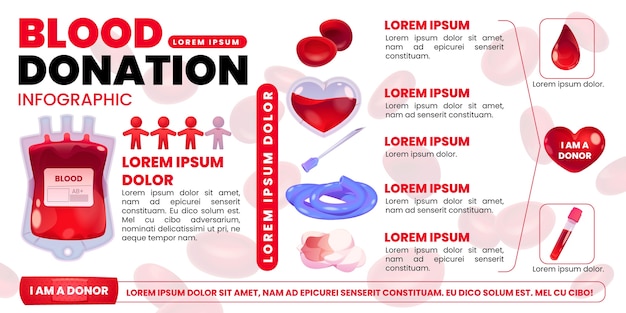Key Facts about Sickle Cell Anemia

Sickle cell anemia is a genetic blood disorder that primarily affects people of African, Middle Eastern, and Mediterranean descent.
It is caused by a mutation in the gene responsible for producing hemoglobin, the protein that carries oxygen in red blood cells.
The mutation causes red blood cells to become rigid and crescent-shaped, hindering their ability to travel through blood vessels and deliver oxygen to tissues.
Individuals with sickle cell anemia often experience chronic fatigue, as the cells are unable to efficiently carry oxygen to vital organs.
Sickle cell anemia can cause severe pain crises, during which blood flow is restricted, leading to organ damage and intense pain.
People with sickle cell anemia have an increased risk of developing infections and experiencing complications such as pneumonia and urinary tract infections.
Pregnant women with sickle cell anemia require close monitoring, as the condition can increase the risk of complications during pregnancy and childbirth.
While sickle cell anemia is a lifelong condition, advancements in medical treatments have significantly improved the quality of life for those affected.
Blood transfusions can provide temporary relief for people with sickle cell anemia by replacing their abnormal red blood cells with healthy ones.
Hydroxyurea is a medication commonly used to treat sickle cell anemia. It helps increase the production of fetal hemoglobin, which is resistant to sickling.
Key Facts about Sickle Cell Anemia part 2
Stem cell transplantation can offer a potential cure for sickle cell anemia by replacing the faulty bone marrow with healthy stem cells from a compatible donor.
Individuals with sickle cell anemia should avoid temperature extremes, as extreme cold or heat can trigger a sickling crisis.
Sickle cell anemia is an inherited condition, which means it cannot be contracted or spread from person to person.
It is estimated that sickle cell anemia affects approximately 100,000 people in the United States alone.
Sickle cell anemia can lead to complications such as stroke, pulmonary hypertension, and organ damage if left untreated.
Treatment plans for sickle cell anemia often involve a multidisciplinary approach, including regular medical check-ups, dietary adjustments, and medication management.
Emotional support and counseling are crucial for individuals with sickle cell anemia, as the condition can have a significant impact on their mental well-being.
Sickle cell anemia can cause jaundice, a yellowing of the skin and eyes, due to the breakdown of red blood cells.
Individuals with sickle cell anemia may require additional vaccinations to protect against infections that their weakened immune system is more susceptible to.
Routine eye examinations are recommended for people with sickle cell anemia, as the condition can lead to vision problems such as retinopathy.
Sickle cell anemia can cause delayed growth and development in children, requiring close monitoring and appropriate interventions.
Genetic counseling is highly recommended for individuals with sickle cell anemia who are planning to have children, as it can help assess the risk of passing on the condition to their offspring.
Regular exercise and physical activity are beneficial for individuals with sickle cell anemia, as they help improve blood flow and overall health.
Maintaining a well-balanced diet rich in fruits, vegetables, and whole grains can help manage the symptoms of sickle cell anemia.
Symptoms of sickle cell anemia can vary widely, ranging from mild to severe, even among individuals within the same family.
People with sickle cell anemia are advised to stay hydrated to prevent complications such as a sickling crisis.
Sickle cell anemia can affect multiple organs, including the lungs, kidneys, liver, and spleen.
Genetic testing can be used to diagnose sickle cell anemia and identify carriers of the gene mutation.
African countries, where sickle cell anemia is more prevalent, often face challenges in terms of access to proper diagnosis and treatment.
Sickle cell anemia can interfere with blood flow to the bones, resulting in chronic pain and an increased risk of bone infections.
Blood transfusions for sickle cell anemia are often matched to minimize the risk of complications, such as iron overload.
Sickle cell anemia can cause priapism, a painful condition characterized by prolonged and unwanted erections in men.
Nausea and vomiting can occur during sickle cell anemia episodes due to impaired blood flow to the gastrointestinal system.
Oxygen therapy may be necessary during sickle cell anemia crises to help improve oxygen levels and relieve symptoms.
Sickle cell anemia affects red blood cells, but it can also impact white blood cells, making individuals more susceptible to infections.
Individuals with sickle cell anemia may experience hand-foot syndrome, which is characterized by painful swelling in the hands and feet.
Opioid medications are sometimes prescribed to manage the severe pain associated with sickle cell anemia crises.
Sickle cell anemia can be diagnosed prenatally through specialized testing performed during pregnancy.
Sickle cell anemia can affect a person’s ability to concentrate or focus due to reduced oxygen supply to the brain.
Regular blood transfusions in sickle cell anemia can cause iron overload, requiring chelation therapy to remove excess iron from the body.
Sickle cell anemia is characterized by episodes known as vaso-occlusive crises, during which blood vessels become blocked by sickled red blood cells.
Sickle cell anemia can result in organ damage, particularly to the spleen, which may require surgical removal in severe cases.
Research studies are ongoing to develop new treatments and potential gene therapies for sickle cell anemia.
Individuals with sickle cell anemia should inform their healthcare providers about their condition when seeking medical care to ensure appropriate management.
Despite the challenges posed by sickle cell anemia, many people with the condition lead fulfilling and productive lives, proving that it is possible to thrive with this chronic illness.
